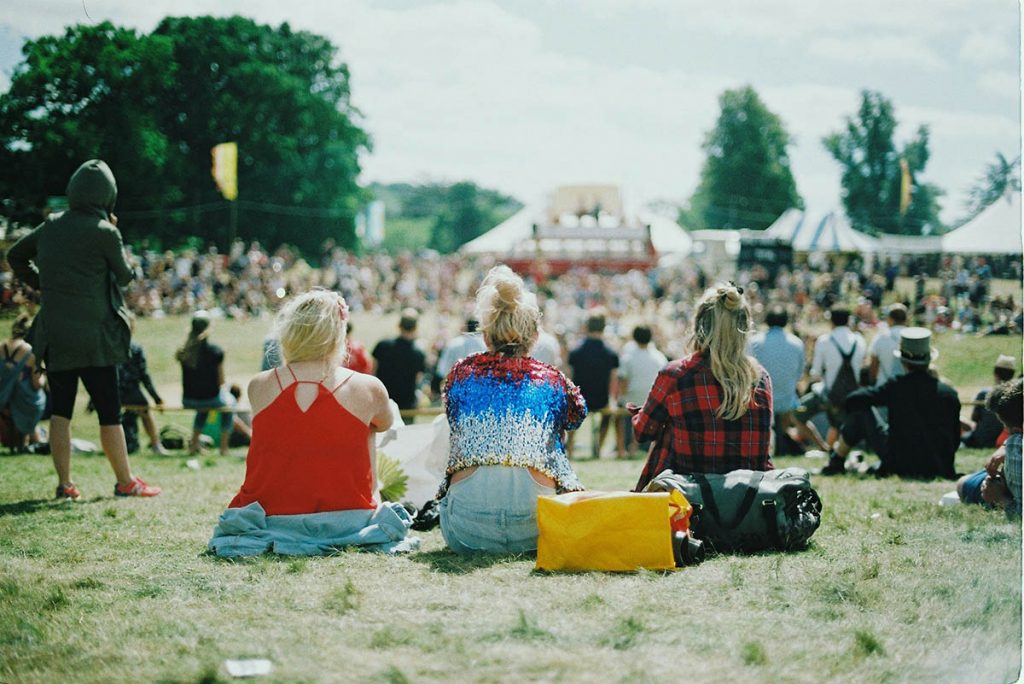Setting Up a Local Festival the Right Way
 From picking the right venue to working with local authorities, a well-planned festival provides an experience for festival goers and supports local businesses. This guide covers the basics for setting up a festival, whether you’re planning a music festival, food festival, or outdoor festival. Follow these steps to ensure your festival runs smoothly and leaves a lasting impression on festival goers.
From picking the right venue to working with local authorities, a well-planned festival provides an experience for festival goers and supports local businesses. This guide covers the basics for setting up a festival, whether you’re planning a music festival, food festival, or outdoor festival. Follow these steps to ensure your festival runs smoothly and leaves a lasting impression on festival goers.
Define Your Vision and Theme
Having a clear vision will help you design the festival experience and guide all the planning. Studying successful festivals, like the Edinburgh Fringe Festival, can give you festival ideas and festival concepts to borrow for your own festival.
Who is Your Target Market?
Your target market will determine the festival theme, festival acts, food and drink vendors, and festival ticket prices. Knowing your audience will help you tailor your digital marketing and social media to reach the right people.
Pick the Right Venue
Consider whether an outdoor or indoor venue is right for your festival and what capacity you need. Renting a festival site involves not just venue hire but also venue hire fees, logistics manager costs, and stage hire if you’re having performances. Don’t forget to think about how much space you’ll need for the festival acts, food stalls, rest areas, and emergency access.
Budget for Everything
List all the costs: artist fees, venue rental, sound systems, event staff, and temporary events notice fees. Set aside a contingency fund for unexpected costs that may arise from unforeseen circumstances, like bad weather or additional waste management. Work out how much you need to raise through ticket sales, local business sponsorships, or crowdfunding to support the festival budget.
Get Event Insurance and Permits
Check with local authorities to see what permits are required, especially if it’s an outdoor festival. A temporary events notice may be needed if you’re selling alcohol on site, and you’ll also need to coordinate with emergency services to be prepared for any incidents. Event insurance covers liabilities, unforeseen circumstances, and helps with unexpected costs.
Food and Drink Vendors
Partner with local businesses to offer a range of options that fit with your festival theme. For a food festival, a diverse menu is key; for a music festival, quick and easy-to-eat options are best to keep festival goers happy and not queuing for long. Set up dedicated areas for food stalls and make sure they meet health and safety standards.
Portable Toilets and Waste Management
Clean portable toilets at strategic points around the festival site are a must. Enough units will reduce queuing and keep festival goers happy. Also, set up a waste management plan with recycling bins and waste bins to manage the environmental impact of the festival. This is especially important for outdoor festivals where waste disposal can be more challenging.
Traffic Flow and Safety Measures
Set up dedicated entrances and exits to keep the crowds in order and prevent congestion. Conduct a full risk assessment and plan for emergency services access. Safety is key, as it directly affects the festival experience and encourages positive feedback for future events.
Book a Diverse Lineup and Festival Acts
Partner with local and big-name acts to boost ticket sales and reach more people. For music festivals, consider a mix of genres to cater to different tastes and maximise attendance.
Marketing Strategies
Start selling tickets early to raise funds and gauge interest. Use digital marketing techniques like email marketing, social media engagement, and partnerships with influencers to reach your target audience. Create a countdown or offer exclusive deals for early-bird tickets to build hype and drive ticket sales. Encourage festival goers to engage on social media by using festival-specific hashtags, which will help generate buzz and brand awareness.
Bad Weather
Have covered areas or tents for rain and make sure sound systems and stages are weatherproof. Communicate with your logistics manager to adjust setups as needed to keep the festival site safe and enjoyable, whatever the weather.
A Dedicated Team
Train event staff and volunteers to manage crowds, support festival goers, and deal with any issues. A team that’s committed will make things run more smoothly and contribute to a successful festival.
Post-Event Feedback
Get feedback from festival attendees, vendors, and staff to see what went well and what can be improved. This will be valuable for future events and help you build a reputation for quality, attracting bigger crowds and more support.
Conclusion
Setting up a local festival the right way means planning and preparation. With a clear vision, the right festival site, and a dedicated team, you can create a fantastic experience for festival goers. From ticket sales to waste management, every step counts to make it a memorable event that celebrates the local community and sets you up for future events.